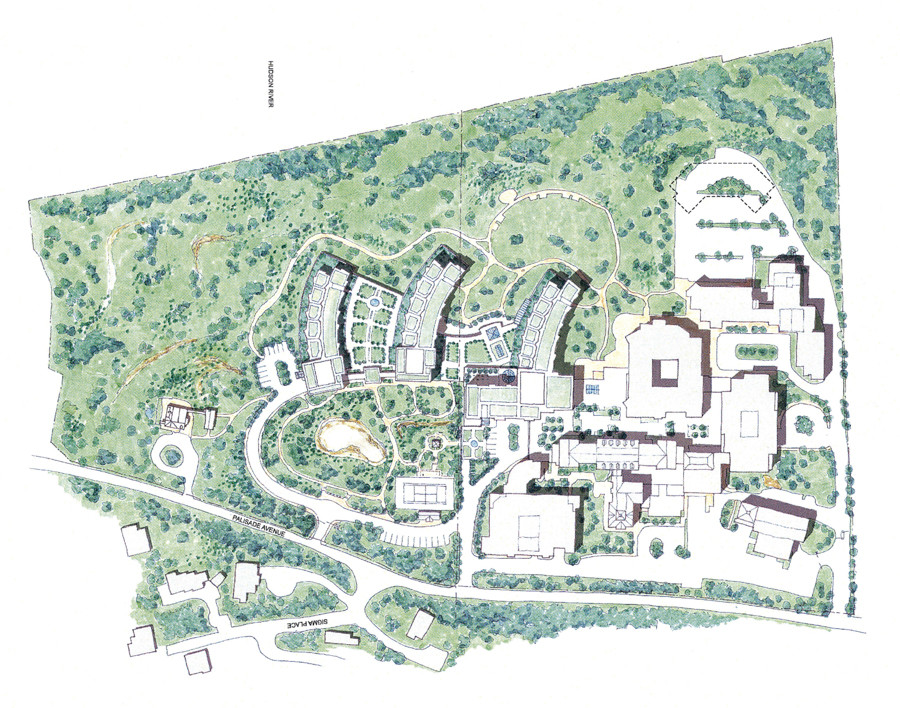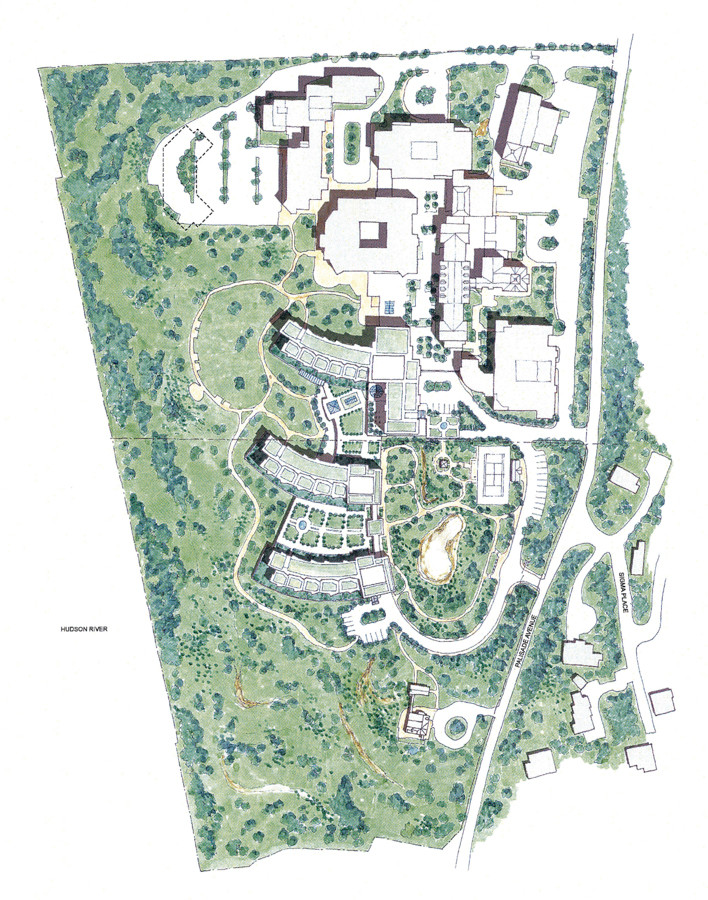Hebrew Home vows to build, no matter what
The Hebrew Home for seniors in Riverdale has submitted its construction plans to the city for approval, but it seems that no matter what, the organization will be building something on its campus, according to CEO Dan Reingold.
The plan, submitted to the City Planning Commission last month, features two buildings – a six-story structure and a four-story one – on the southern portion of the campus, along with a 12-story building on the northern portion. A park-like area of the campus would be open to the public, and some land along the Hudson would be donated for a greenway, according to a plan Mr. Reingold outlined during an interview last week.
The southern portion of the Hebrew Home’s campus is zoned for single-family homes. But a residential compound known as a continuing care retirement community, or CCRC, which the Hebrew Home plans to house in its new buildings, could be eligible for a zoning variance – provided the city issues a special permit for any plan to build taller and larger structures. A CCRC offers independent-living apartments, along with elder care services.
The project would need to go through the Uniform Land Use Review Procedure, or ULURP, and be approved by the community board, the borough president, the City Planning Commission, the City Council and the mayor.
The Hebrew Home’s construction plans for the northern section of the campus, which is zoned R4, do not require any special approvals, Mr. Reingold said.
But “we’ve made a decision to submit the [entire] project through the ULURP process, even though we don’t need to do that on our north campus,” he said. “We made the decision to put the whole project through so the community can continue to put input into the process.”
If the proposal fails, the Hebrew Home still has a construction plan.
This alternative plan – which, Mr. Reingold warned, local residents might dislike a lot more – involves a couple dozen single-family homes taking up all of the southern campus that is currently planned as public green space.
Mr. Reingold said he hopes to avoid that type of construction, but would implement the plan if pushed into a corner.
“We can do this as of right,” Mr. Reingold said. “I think there are those in the community that think if they oppose this project, that we will just pack up and go away or sell the property or give up. The answer is no.”
His preferred plan, which has been submitted to the city for approval, would be a “much better alternative for the community,” he said.
After staunch opposition from some local residents to its original construction plans, the Hebrew Home “actually volunteered to demolish a building” and to move planned construction further north on the campus – freeing up more green space in the southern section – he said.
Bronx Councilman Andrew Cohen has said earlier this month that the Hebrew Home should stay true to the R1.1 zoning on the southern campus.
“After a thoughtful, long process, spearheaded by the community board, to zone the neighborhood, that is what was thought to be appropriate,” he said. “I have no reason to second-guess that.”
But Mr. Reingold argued that part of the original R1.1 zoning included a clause allowing for the future development of the Hebrew Home.
“The R1 zoning is not intended to be cut in stone, it is intended to reflect in the institutional needs of the community,” he said.
The Hebrew Home, a non-profit organization, has been in the neighborhood for almost 100 years. Mr. Reingold has been CEO for the last 26 of them.
“We’re not developers, people have tried to portray us as these developers, but that’s not what’s happening,” he said. “We are dealing with a community, so lots of people have lots of opinions … we think we have done an amazing job of not only being fully transparent and involved and inclusive, but also responsive.”









